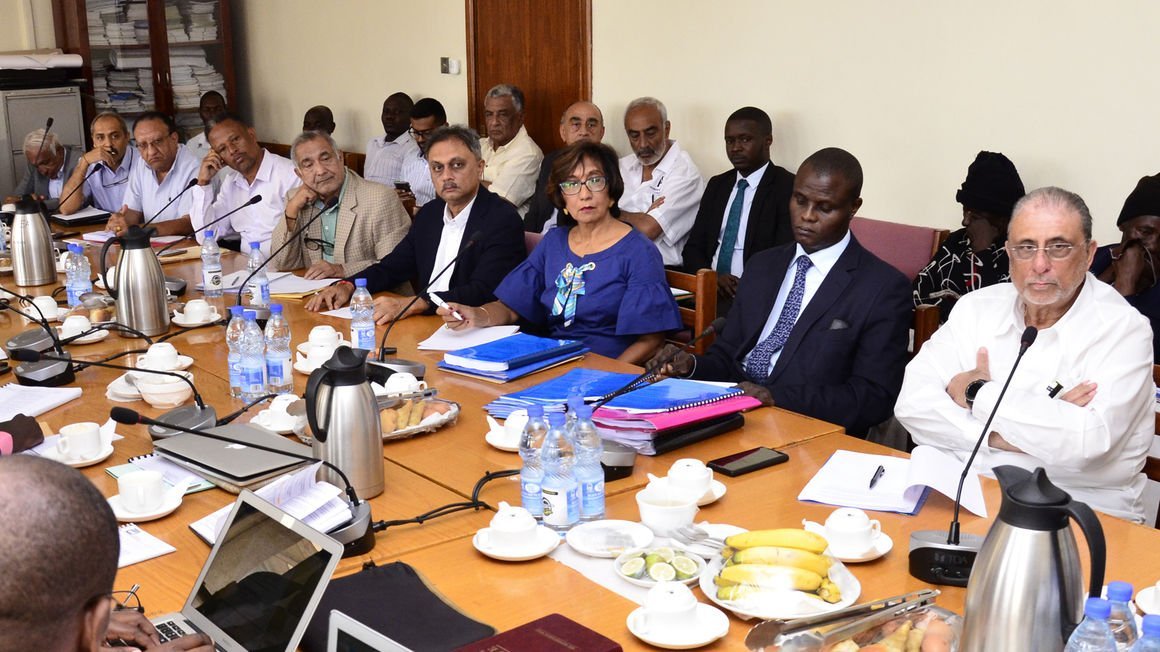UGANDA, Kampala | Real Muloodi News | Following a 2-year investigation into the Departed Asians Property Custodian Board (DAPCB), a parliamentary committee has released their findings to the public, according to the Daily Monitor.
The report was produced by the Subcommittee on Commissions, Statutory Authorities and State Enterprises (COSASE).
The objectives of the 2-year investigation were to:
- Investigate allegations that some individuals who received compensation for their properties later repossessed them
- Establish the total amount that was realised from the sale or rent of these properties
- Establish the number of court cases that DAPCB faces
- Establish whether there was possible fraud during the repossession of properties
- Propose measures of safeguarding assets against fraud
- Investigate any other matters that could be incidental to the administration of the properties.
Report Findings
Fraudulent Repossession of Properties
The report found some owners had repossessed the properties without fulfilling the requirements under the Expropriated Properties Act (EPA).
One of these requirements is for a claimant to be physically present before a property be returned to them.
The committee names 637 properties that were repossessed even when the registered proprietors never returned to Uganda. The list of such instances includes:
- Ms Unia Ssebaggala who repossessed 285 properties
- Mr Mohamed Allibhai who repossessed 119 properties
- Ms Mumtaz Kassam who repossessed 53 properties
- Minex Karia who repossessed 46 properties
- Praful Patel who repossessed 50 properties
- Praful Chandra who repossessed 18 properties; and
- N. K. Radia who repossessed 66 of such properties.
Powers of Attorney and Letters of Repossession
According to the report, perpetrators who fraudulently repossessed properties used powers of attorney that were purportedly issued by overseas property owners. Some perpetrators then illegally transferred the repossessed properties into their own names.
In other cases, they used letters of repossession issued by ministers of Finance. Repossession requires certificates of repossession, not letters, to be valid.
“The committee found that a number of agents who repossessed the properties on behalf of their principals transferred these properties without a required registrable instrument, which by law is the certificate of repossession that confers powers to transfer to former owners,” the report states.
No supporting documents
The committee noted that some properties were repossessed without supporting documents. Chairman of the Association of the Expropriated Properties’ Owners Association, Mohammad Allibhai, who controls 725 properties, was named in the report. Mr. Allibhai could not show any supporting documents like powers of attorney, certificates of repossession or letters of repossession.
Withdrawn certificates
About 20 claimants had their repossession certificates withdrawn after they failed to return to Uganda within 120 days, as required by the EPA. These properties should have remained under the management of the Custodian Board. Instead, some of these properties were transferred into private hands.
Paid properties repossessed
Government had paid compensation amounting to Shs1.7b to 119 former Asian owners, according to the report. Some of these owners took possession of the properties for which they were compensated.
In addition, some properties that government had paid compensation on were stolen. These properties were later sold to legitimate buyers without following proper procedures, according to the report.
Report Recommendations:
- Revoke transfers of ownership where former owners didn’t physically return to manage the properties
“All repossessions whose former owners didn’t physically return to manage the properties as required by law should be cancelled or revoked for being null and void… The minister should invoke his/her powers under Section 9 (1) of the EPA to make an order to either retain such properties as government or the same be disposed of in a manner prescribed by Regulation 11 of the Expropriated Properties (Repossession and Disposal)…” the committee recommends.
- Revoke transfers of ownership that were effected based on letters of repossession
- Properties that were reclaimed using fraudulently obtained repossession certificates should revert to government ownership
- Prosecution of persons found to have fraudulently acquired repossession certificates
- Properties that were reclaimed after compensation was paid should revert to government ownership
- Prosecution of persons found to have reclaimed properties for which they had already been compensated
Background
In 1972, Former president Idi Amin expelled Asians, mainly of Indian descent, out of Uganda. Assets left behind by the Asians included property, which included businesses, stock and real estate.
In 1977, talks between the Government of Uganda and the United Nations High Commission for Refugees were held in Entebbe to discuss compensation of property left behind by departed Asians. As a result, through the UNHCR, Uganda agreed to pay compensation for assets left behind.
In 1983 Government passed legislation for the provision for return of properties confiscated by Government to their former owners. By law, under the Expropriated Properties Act, all property that was left behind was vested in the Government of Uganda under the authority and management of DAPCB.
Parliament discovered that there were irregularities and fraud in the management, compensation and repossession of the properties of the departed Asians.
READ MORE LIKE THIS:



